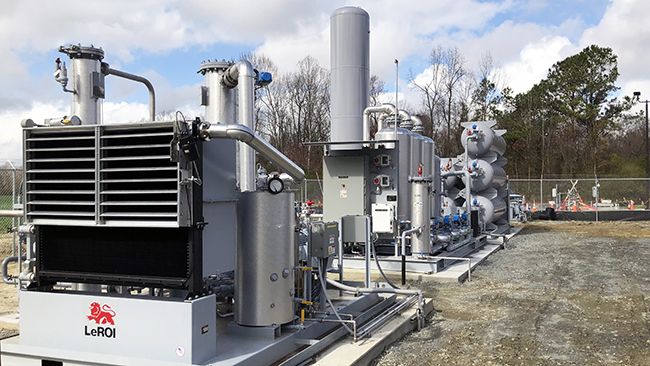
The biogas revolution: transforming waste into green energy
At a time when environmental concerns are rising in South Carolina, the production of clean and renewable energy has become a priority for all residents. One of the most innovative and promising solutions for a sustainable future is the development of biogas, which transforms organic waste into green energy.
What is Biogas exactly
Biogas is a mixture of gases produced by the degradation of organic matter in the absence of oxygen (anaerobic process), in other words mostly food waste. It is mainly composed of methane (CH4) and carbon dioxide (CO2), as well as small amounts of other natural gases. According to Will Campbell, CEO of junk disposal company Conway Dumpster Rental Center, biogas can be produced from various biomass sources, such as agricultural waste, household waste, livestock manure, and even sewage treatment sludge.
The Biogas Production Process
Biogas production in South Carolina generally takes place in anaerobic digesters where organic waste is decomposed by microorganisms. This process takes place in several stages: hydrolysis, acidogenesis, acetogenesis and finally methanogenesis, which results in the production of the final stage: methane. Once this biogas is produced, it can be used in different ways such as: production of electricity and heat, injection into the natural gas network, or as fuel for vehicles.
The Environmental Benefits of Biogas
Using biogas as an energy source has many environmental benefits. It helps reduce greenhouse gas emissions by capturing methane that would otherwise have been released into the atmosphere. Also the digestate, a by-product of the anaerobic process, can be used as a natural, nutrient-rich fertilizer, reducing the need for chemical fertilizers and limiting pollution.
- Reduction in methane emissions
- Production of a natural fertilizer rich in nutrients
- Energy recovery from waste
- Less dependence on fossil fuels
- Better recycling processes
- Less usage of dumpster rentals
The Impact of Biogas on Waste Management
The transformation of waste into biogas has obviously a significant impact on waste management processes. It makes it possible on one hand to reduce the quantity of waste that would have ended up in landfill or incineration facilities, on the other hand to recover this waste as a source of energy. This process therefore contributes to the preservation of the environment and helps with sustainability as it is part of a waste recovery approach, essential for the circular economy.
The Challenges of Biogas Production
Although biogas production offers many benefits as showed above, it faces a number of challenges to become mainstream. Initial investments for installing anaerobic digesters can be high. The effectiveness of the process depends closely on the quality and composition of the waste, and lack of awareness or incentives can hinder its general adoption in South Carolina. Also integration into the existing energy distribution network requires technical and regulatory adaptation.
Initial investment costs
- Dependence on input quality
- Lack of awareness and incentives
- Integration into existing energy networks
Examples of Success Around the World
All over the world, successful initiatives show the potential of biogas. Countries like Germany, Sweden and Brazil are leading the way in the use of biogas, thanks to favorable policies and significant investments in modern research and technology. Energy farms that combine agriculture and biogas production are becoming more widespread, offering a sustainable business model and increased energy independence for farmers and residents.
The Future of Biogas
The future of biogas looks promising with technological innovation and the growing commitment to renewable energies in America. Improving anaerobic digestion techniques, optimizing waste collection and expanding infrastructure can help increase production and lower costs. Raising public awareness of the importance of the energy transition will also play a key role in the increased adoption of biogas.
Technological innovations
The biogas revolution currently taking place offers a viable and ecological alternative to our current dependence on fossil fuels. Transforming waste into green energy not only supports the fight against climate change, but also offers a circular economic model beneficial to the communities and businesses of South Carolina, as well as its environment. As our society moves towards sustainability, biogas initiatives can only increase, bringing with them hope for a clean, renewable energy future.
Comments are Closed